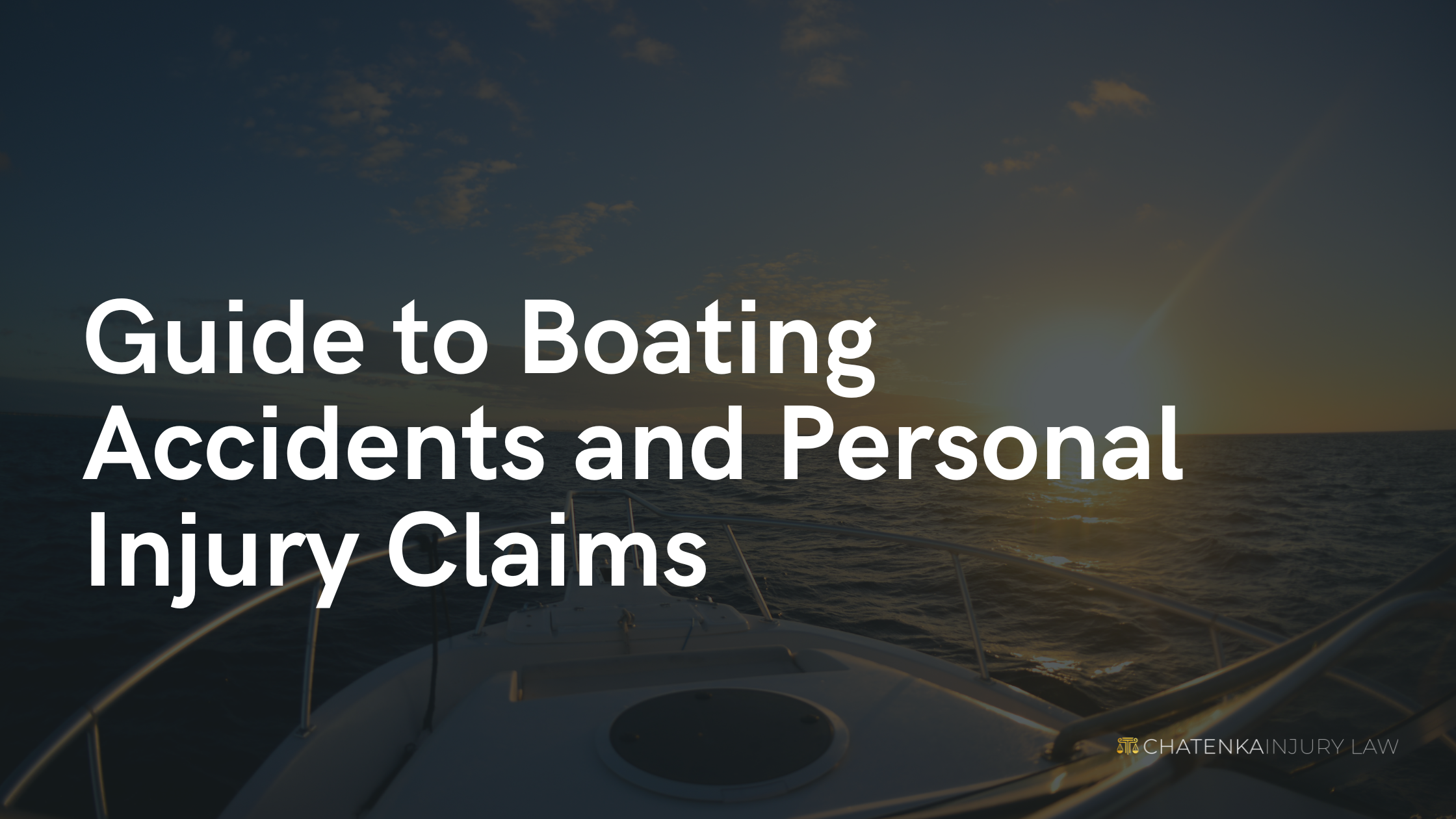Guide to Boating Accidents and Personal Injury Claims
Navigating the Seas of Boating Accidents
Boating offers a serene escape from the hustle and bustle of everyday life, but like any recreational activity, it comes with its risks. Boating accidents can result in severe injuries, property damage, and even fatalities. When such unfortunate events occur, understanding your rights and legal options is crucial for seeking justice and compensation.
Understanding Boating Accidents: Common Causes and Consequences
1. Operator Error:
Many boating accidents stem from operator negligence, such as inattentiveness, speeding, or operating under the influence of alcohol or drugs. Even experienced boaters can make critical errors that lead to collisions or injuries.
2. Hazardous Conditions:
Navigating water bodies entails dealing with unpredictable elements like weather changes, rough waters, or hidden obstacles. Poor weather conditions or inadequate safety precautions can significantly increase the risk of accidents.
3. Equipment Malfunction:
Faulty equipment or inadequate maintenance can compromise the safety of a vessel. Engine failures, steering problems, or malfunctioning navigational aids can contribute to accidents on the water.
The Legal Landscape: Personal Injury Claims in Boating Accidents
1. Establishing Liability:
Proving liability in boating accidents can be complex, involving various factors such as negligence, recklessness, or violation of maritime laws. Identifying responsible parties, including boat operators, owners, rental companies, or manufacturers, is essential for pursuing a personal injury claim.
2. Jurisdictional Considerations:
Boating accidents often occur in navigable waters, raising questions about jurisdiction and applicable laws. Understanding maritime laws and jurisdictional boundaries is critical for determining the appropriate legal framework for your personal injury claim.
3. Comparative Negligence:
In cases where multiple parties share fault for a boating accident, the principle of comparative negligence may apply. This legal doctrine assesses each party's degree of fault and determines the proportion of damages they're liable for, potentially impacting the outcome of personal injury claims.
Essential Steps in Pursuing a Personal Injury Claim
1. Seek Medical Attention:
Prioritize your health and safety by seeking medical attention immediately following a boating accident, even if injuries seem minor. Documenting your injuries and receiving timely medical treatment strengthens your personal injury claim and ensures your well-being.
2. Preserve Evidence:
Gather evidence from the scene of the accident, including photographs, witness statements, and any relevant documentation. Preserving evidence enhances your case's credibility and provides valuable support for your personal injury claim.
3. Consult a Personal Injury Attorney:
Navigating the legal complexities of boating accident claims requires expertise and experience. Consult a reputable personal injury attorney specializing in maritime law to assess your case, advocate for your rights, and pursue fair compensation for your injuries and losses.
Sailing Towards Justice
Boating accidents can have devastating consequences, but understanding your rights and legal options empowers you to seek justice and recover rightful compensation. By recognizing common causes, navigating the legal landscape, and taking proactive steps, you can effectively pursue a personal injury claim and navigate the waters of uncertainty towards a brighter future. Remember, you're not alone—Chatenka Injury Law is here to guide you every step of the way.


